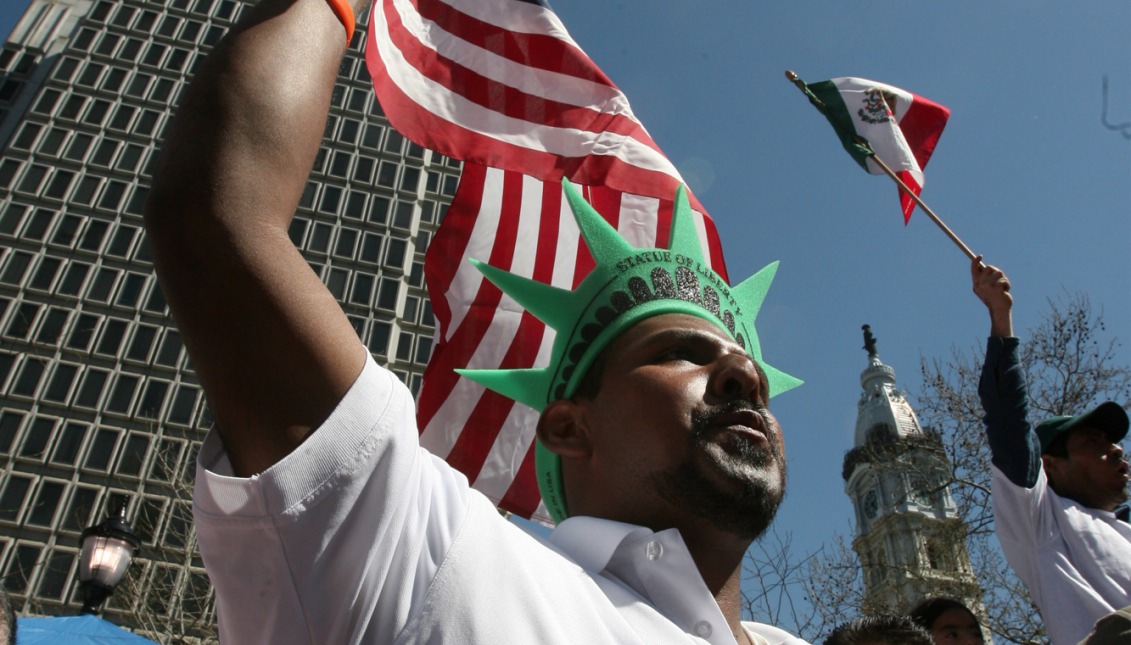
For a global city, we sure are uneasy about our immigrants
MORE IN THIS SECTION
A number of years ago, a member of a local faith organization introduced us to a woman, Erica, whose brother, Beto, had been snatched off the subway platform at Market-East Station as he was on his way to work, and detained until ICE could ascertain whether he was undocumented or not. Beto had been on a platform full of people, but only a few were singled out for immigration status checks — all of them Latinos going to restaurant jobs, wearing sneakers and carrying backpacks.
Profiling by race, ethnicity and even clothing, has been bog standard for law enforcement agencies from Philadelphia to Arizona, but according to Erica (who spoke to her brother about his apprehension after he had already been deported) there was another measure that heaped suspicion on her brother and the others taken that day: their accent. The law enforcement agents had gone up and down the platform asking each individual what time it was. If the answer was given in heavily Spanish-accented English, it was enough to make them suspect.
We were reminded of this anecdote this weekend, when the Philadelphia Inquirer ran a story about Roselyn Gray, a Philadelphia resident born in Liberia, who went into the Spectrum Community Health Center in Philadelphia due to an allergic reaction to penicillin, and was immediately shunted off to the University of Pennsylvania to be tested for Ebola. “Widespread tension about Ebola,” Melissa Dribben’s article of Oct. 27 states, “has made even perfectly healthy people from African countries wary about identifying themselves.”
Dribben goes on to quote Oni Richards-Waritay, the executive director of the African Family Health Organization: “People are trying to mask their accents and not wearing African clothing. They don’t want to be stigmatized.” In fact, Richards-Waritay recounts to Dribben that last week, when she took her 2-year-old son to the hospital because of a nosebleed, she enjoined her husband not to speak. “His accent is stronger than mine,” she told the Inquirer reporter.
Not that this racial profiling and immigrant-blame game is isolated to Philadelphia. In New Jersey an elementary school required two Rwandan students to stay away for the next 21 days, for fear of Ebola, even though Rwanda is futher away from Sierra Leone, Liberia and Guinea than New Jersey is from Texas. And in New York, two Senegalese-American boys were called “Ebola” in school, and beaten and harassed.
“Fearbola” is what people are calling the contagion panic that seems to have beset us. Yes, the fear of Ebola is genuine, but it has expressed itself in xenophobic ways precisely because at its heart is a panic less about disease than about immigrants.
Just as West African (all African) immigrants embody Ebola for the panicked xenophobe, so do the unaccompanied Central American minors at the border embody Enterovirus (which the minors have been accused of bringing to the U.S., and so causing a “mini pandemic”).
The panic and the accusations in any and all of these instances have less to do with whether the immigrant population is documented or undocumented, established or seeking refuge, middle class or poor, resident or transient, sick or healthy — the crucial part is that they are all immigrants.
Foreigners. Those who bear the markers, whether in speech or demeanor, of not being whatever we visualize the default American to be.
Science can address the pathology of diseases, but only we — the ordinary citizens of this nation and city — can address the pathologies of racism and xenophobia. It’s pandemic, and it’s well past time we start addressing it.






LEAVE A COMMENT:
Join the discussion! Leave a comment.